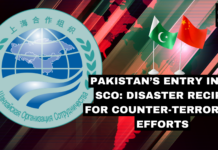In the last few years, Pakistan has accelerated efforts to present itself as an emerging Buddhist destination in the South Asia region. It is targeting countries such as Myanmar, Sri Lanka, Thailand, Vietnam, and other Southeast Asian states with significant Buddhist populations. Islamabad has made similar attempts in the past to promote tourism for the followers of the Buddhist religion. For example, in April 2016, Pakistan invited 40 Sri Lankan Buddhist monks to showcase its heritage and promote the Gandhara School of Art and Takshila Museum.1
What Pakistan has been attempting to do is to create an image of “a Muslim country” that has preserved the world’s richest Buddhist sites and artifacts. On the contrary, through such ‘soft power’ initiatives, the Pakistani state has been trying to absolve itself of all crimes related to ethnic and religious minorities in the country.
Secondly, Pakistan aims to enhance bilateral relations with South Asian Association for Regional Cooperation (SAARC) and Association of Southeast Asian Nations (ASEAN) countries by promoting itself as a Buddhist destination. Thirdly, China has been urging Pakistan to revive the ‘Gandhara Trail’ that links Lahore, Taxila, and Peshawar along the China-Pakistan Economic Corridor (CPEC) route. The Trail falls under the Chinese-sponsored ‘Buddhist Network,’ a discreet programme to appropriate Buddha’s legacy in Asia.2 Lastly, a religion-centric tourism activities may bring some foreign currency reserves in Pakistan, which is facing a dire economic situation.
Reports suggest that Pakistan may organize a SAARC event in May at Taxila to promote religious tourism. Interestingly, a few Pakistan International Airlines (PIA) charter flights are scheduled to bring selected tourists from countries like Bhutan, Vietnam, and Myanmar to showcase the main Buddhist sites in the country. Furthermore, the government of Pakistan is planning to engage social media influencers from South Korea, Japan, and Singapore to promote the Buddhist tourism. These desperate attempts to portray Pakistan as a religiously secular country may not be enough to distract the international community from the daily occurrences of violent crimes against religious minorities in the country. According to the annual Country Reports on Human Rights Practices by the US State Department, violence against religious minorities continued in Pakistan in 2023, including forced conversions, early and forced marriages, and mob attacks targeting minorities.3
According to an Islamabad-based Think Tank, Centre for Social Justice (CSJ), a total of 193 incidents of violence against religious minorities took place in Pakistan last year, a number that is believed to be much lower than the actual figures.4 Several local human rights activists have also claimed that there had been no “improvement” in safeguarding basic rights of different religious minorities – Hindu, Christian, Sikhs, Buddhists – in Pakistan.
In response to US criticism regarding its poor track record on stopping violent crimes against religious minorities, Pakistan “categorically” rejected the 2023 Country Report on human rights practices.5 Islamabad argued that the contents of the report were unfair, based on inaccurate information, and completely detached from the ground reality. The Pakistani government is reportedly targeting social media channels and accounts that report true incidents of violations of religious rights, forced conversions, abductions, rapes, and robberies targeting Hindu and Christian minorities in Pakistan.6 7
It is estimated that the state authorities have identified 279 Twitter accounts, and several Facebook and Instagram accounts are also under scrutiny, along with 31 YouTube channels. The government is even planning to conduct a forensic examination on around 200 vlogs. Notably, Twitter has been banned in the country since February this year.8 These actions are perceived as known tactics to silence independent voices highlighting ongoing crimes against humanity in Pakistan and to safeguard the image of the Army establishment.9 10
Facing regular international scrutiny on the deteriorating human rights situation, Pakistan is desperately looking for a face saver and is therefore attempting to revive the so-called ‘Gandhara Corridor’ in some areas of Khyber Pakhtunkhwa and Punjab. As a result, on April 4, Member National Assembly (MNA) Dr Ramesh Kumar Vankwani introduced “The Gandhara Corridor Bill, 2024” to establish the Gandhara Corridor to connect Pakistan with the Buddhist world.11 According to the bill, the Corridor shall be headed by the chairperson to be appointed by the Pak Prime Minister with head office at Islamabad.12
Meanwhile, the Khyber Pakhtunkhwa (KP) government has expressed strong reservations against the bill, terming it as “federal overreach” in provincial affairs and rejecting it as controversial, unconstitutional, and unethical.13 Former KP Minister of Archaeology, Syed Aqil Shah, also criticized the proposed bill, declaring it a violation of the 18th Amendment to the Pakistan Constitution, which guarantees provincial autonomy.14 Notably, 90 percent of the Gandhara civilization antiquities are based in KP.15 The province is already facing severe difficulties in revenue generation and is demanding a hike in hydropower profits and oil and gas royalties to fund its development expenditure.16 On top of this, the federal government is now trying to snatch away any revenue generated from the proposed Buddhist corridor.
It is expected that the ongoing tussle between the federal government and KP over claims on the corridor will intensify in the coming months. Moreover, local Islamist organizations may object to the Gandhara Corridor Bill and the special attention given to a minority religion in Pakistan.17 This could result in increased targeted violence against religious minorities in KP and Punjab. Despite efforts to revive the Buddhist trail, a report highlights that the ongoing construction of the Diamer Basha dam in Gilgit-Baltistan will drown ancient carvings, some dating back to 8,000 BCE, including “images of Buddha and Buddhist stupas (burial mounds).”18 Therefore, Pakistan’s plans to promote Buddhism are seen as another attempt to distract the international community from ongoing violence against religious minorities.
—–
SOURCE:
1 https://www.dawn.com/news/1253899
2 https://morungexpress.com/exporting-chinese-buddhism-as-chinese-goods-unsustainable
3 https://www.state.gov/reports/2023-country-reports-on-human-rights-practices/pakistan/
4 https://tribune.com.pk/story/2458695/punjab-records-193-cases-of-violence-against-minorities-in-a-year
5 https://twitter.com/ForeignOfficePk/status/1783497991778714061
6 https://hrcp-web.org/hrcpweb/hrcp-warns-senate-against-imposing-social-media-curbs/
7 https://www.hrw.org/news/2024/03/12/pakistans-blasphemy-law-targets-youth-social-media
8 https://www.aljazeera.com/news/2024/4/17/pakistan-says-it-blocked-social-media-platform-x-over-national-security
9 https://www.dw.com/en/pakistans-new-internet-laws-tighten-control-over-social-media/a-52375508
10 https://www.dawn.com/news/1818574
11 https://www.dawn.com/news/1825549
12 https://thefridaytimes.com/08-Apr-2024/minorities-lawmaker-offers-to-clear-up-kp-s-confusion-on-gandhara-bill
13 https://www.brecorder.com/news/40297111/gandhara-corridor-bill-introduced-in-na#
14 https://www.dailymirror.lk/international/Proposed-Gandhara-Corridor-Bill-causes-rift-between-Islamabad-and-KPK/107-280961
15 https://www.arabnews.com/node/1609141/amp
16 https://www.dawn.com/news/1792620
17 https://international.la-croix.com/news/world/a-hammer-blow-to-pakistans-buddhist-heritage/12780
18 https://dialogue.earth/en/water/pakistans-diamer-basha-dam-will-drown-ancient-carvings/
